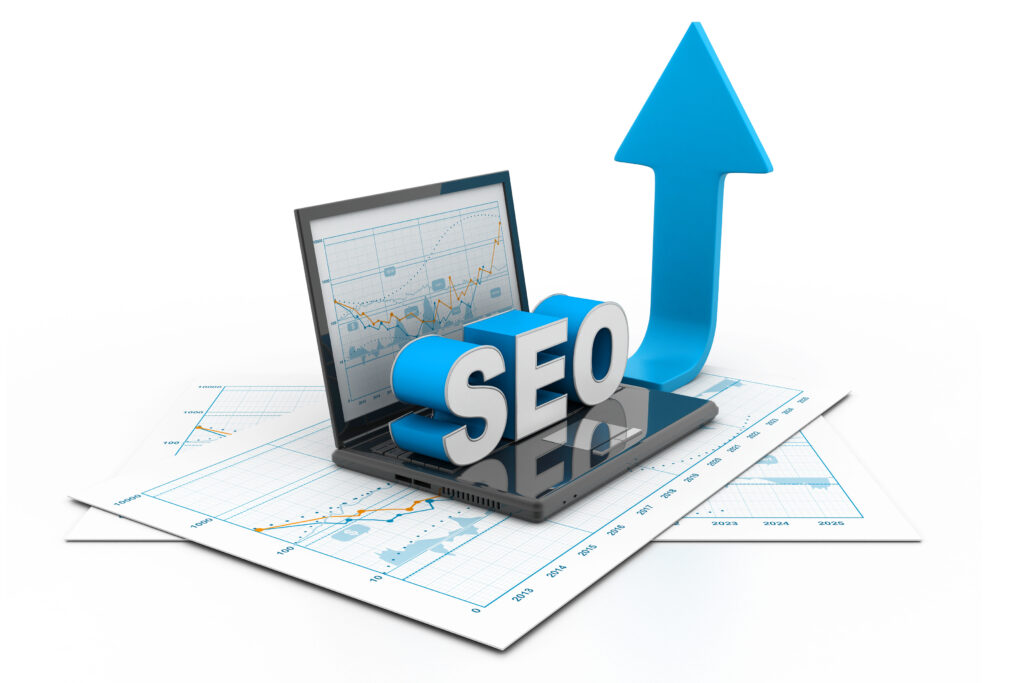
Want Google Rankings? Start with SEO!
Do you want your e-commerce store to rank higher on Google?
Of course, you do! Higher rankings mean more traffic, and more traffic means more sales. That’s why our new e-commerce SEO ranking factors guide is so important. It outlines all the things you need to do to make sure your site ranks as high as possible.
You don’t have to guess what works and what doesn’t when it comes to SEO – we’ve done all the research for you. Our guide is packed with actionable tips that will help your store climb up the search engine rankings.
e-Commerce Guide for E-commerce Search on Google
e-Commerce search on Google can be a great way to find the products you need without having to leave the comfort of your own home. With just a few clicks, you can browse through millions of items and find exactly what you’re looking for.
There are a few simple steps you can take to ensure your e-commerce site comes up in Google searches.
First, make sure all of your pages are indexed by Google. You can do this by submitting a sitemap to Google Search Console. If you have a large website with many pages, it’s also a good idea to create a robots.txt file to tell Google which pages on your site are open to public crawling and which are not.
Second, use relevant keywords throughout your website content and in your titles and meta tags. When someone enters a search query for a keyword that is relevant to your business, then you want your website to come up as a result.
Third, create fresh content regularly. Google loves new content, so the more often you can update your website with new products, blog posts, or other information, the better.
Finally, promote your website through social media and other online channels. The more people who are aware of your site, the more likely they are to visit it and make a purchase.
Following these simple tips can help you make sure your e-commerce site is visible in Google searches and attract new customers.
What Is SEO / Search Engine Optimization?
Search engine optimization (SEO) is the process of improving the visibility and ranking of a website or web page in search engine results pages (SERPs). SEO can be done on-page (on the website itself) and off-page (on other websites).
The goal of your SEO strategy is to improve user experience and the visibility and ranking of a website or web page in search engine results in pages (SERPs). SEO can be done on-page (on the website itself) and off-page (on other websites).

Learn more about Search Engine Optimization.
Get in touch with us to learn what SEO is and how it can help your business get more website visitors.
On-page SEO includes optimizing the website’s title, meta tags, header tags, description, and keyword density. Off-page SEO includes building backlinks, social media optimization, and directory submission.
SEO is important because it helps a website or web page to be found by search engines. When a website or web page is optimized for SEO, it will rank higher in SERPs, which means more people will see it.
What Is SEO for E-Commerce?
Search Engine Optimization (SEO) is the process of improving the visibility and ranking of a website in search engine results pages (SERPs). By optimizing a website for search, businesses can increase their chances of appearing in the top search results for relevant keywords, which can ultimately lead to more website visitors and sales. There are many different factors that go into SEO, from the content on your website to the way other websites link to you. And while there is no magic formula for ranking first on Google, there are some best practices that all e-commerce businesses should follow to improve their SEO. Some of the most important things you can do to optimize your e-commerce website for SEO include:

Keep SEO in Mind to Drive Traffic to your Website.
1. Conduct keyword research to identify the right keywords to target
2. Optimize your product pages for those keywords
3. Build high-quality backlinks to your website
4. Use social media to promote your content
5. Monitor your SEO progress and make changes as needed.
If you’re not sure where to start with SEO, our Ecommerce SEO Guide can help. It covers all of the basics, from keyword research to link building, and provides actionable tips that you can use to improve your SEO.
You can also contact us for more help with optimizing your e-commerce website.
Why is SEO important for marketing?
SEO is a must for brands since it is the most practical and economical way to understand and connect with consumers at crucial times.
In particular, SEO helps consumers when in need, and implementing robust, quality SEO on a brand’s website and digital properties will benefit brands and their marketing efforts.
SEO has its challenges, but the opportunities it brings help future-proof success for any type of business and are critical to a brand’s web presence now and in the future.
Why SEO Matters for Ecommerce Websites
SEO is a critical necessity for e-commerce websites. Your products need to rank higher than your competitors, and they need to display the right way so potential customers can find the products they need in the SERPs and choose your site to click on.
How do you rank in eCommerce?
When it comes to eCommerce, ranking is everything. The higher you rank, the more visible you are to potential customers, and the more likely you are to drive traffic and conversions. But how do you actually go about ranking in eCommerce?

Dominate competitions and boost SEO rankings with these tips!
There are a few key things you need to do in order to boost your eCommerce ranking. Firstly, make sure your website is optimized for search engines. This means ensuring that your titles and descriptions are keyword rich and that your site structure is easy for bots to crawl.
Secondly, focus on building high-quality backlinks from other websites. The more links you have pointing back to your site, the higher you will rank.
Finally, make sure you are regularly producing fresh, relevant content. This will help to keep people engaged with your site and also signal to search engines that your site is active and up-to-date.
By following these simple tips, you can start to see a real improvement in your eCommerce ranking. So get started today and see the results for yourself!
What are SEO ranking factors?
SEO ranking factors are the elements that influence where a website appears on search engine results pages (SERPs). A variety of factors are considered when determining rankings, and they can be divided into two main categories: on-page factors and off-page factors.
On-page SEO ranking factors are those that are related to the content and structure of a website. This includes factors like keyword usage, title tags, and meta descriptions.
The most important ranking factors for SEO are:
1. The quality of your content
2. The structure of your website
3. The strength of your inbound links
4. Your social media activity
5. Your keyword usage
6. Your click-through rates from search results
7. The freshness of your content
8. Your geographic location
9. Your mobile-friendliness
10. Your security (SSL) certificate
These are just a few of the many factors that can affect your website’s ranking on search engine results pages (SERPs). While some are within your control, such as the quality of your content and the structure of your website, others, like inbound links and social media activity, are beyond your control.
To improve your website’s SEO, you need to focus on the factors that are within your control and work to influence the ones that aren’t. That said, even the organic ranking factors that are within your control are constantly changing, so it’s important to stay up-to-date on the latest SEO best practices.
How do you do keyword research for an eCommerce website?
Keyword research is the first step in any SEO optimization approach for eCommerce. Your SEO efforts must focus on selecting the right keywords.

Keyword research is a must for a successful ecommerce business.
By concentrating on the wrong target term, you risk damaging your impressions and attracting low-quality customers to your website.
1. Before you start your keyword research, you need to have a clear understanding of your eCommerce website and what it is selling. This will help you determine which keywords are relevant to your website and products.
2. Once you have a good understanding of your website and products, you can begin researching keywords. There are a number of different tools and methods you can use to research keywords.
3. Once you have a list of relevant keywords, you need to start planning how to incorporate them into your eCommerce website. This includes both on-page and off-page optimization.
4. Finally, you need to track your results to see how your keywords are performing. This will help you fine-tune your keyword strategy and ensure that you are getting the most out of your keywords.
5. If you follow these steps, you will be well on your way to doing successful keyword research for your eCommerce website.
Take note to avoid keyword stuffing and multiple H1 headers on a single page. There are a few things to keep in mind when doing keyword research for an eCommerce website.
How do you do SEO on-page?
1. Start with keyword research: Keyword research is essential for on-page optimization. Use tools like Google AdWords Keyword Planner and semrush.com to find the right keywords for your website. Try to find keywords with low competition like long-tail keywords that are relevant to your business.
2. Optimize your title tags: The title tag is one of the most important on-page SEO elements. Make sure to include your target keyword in your title tag and make it look appealing to searchers.
3. Optimize your meta tags: Meta tags are also important for on-page optimization. Be sure to include relevant keywords in your meta tags and make them descriptive and engaging.
4. Optimize your header tags: Header tags are used to structure your content and make it easy to read. Include relevant keywords in your header tags and make sure they are well structured.
5. Optimize your images: Images are a great way to optimize your content for on-page SEO. Include relevant keywords in your image file names and alt tags.
6. Optimize your content: Content is king when it comes to on-page SEO. Make sure your content is keyword-rich and informative. Try to include at least 300 words of content on each page of your website.
7. Optimize your URLs: URLs are another important element of on-page optimization. Be sure to include relevant keywords in your URLs and make them user-friendly.
8. Optimize your internal links. Internal links are important for two reasons:
First, they help search engines find your content. Internal links should use anchor text that incorporates keyword ideas from your keyword list and be similar to the keywords in that page’s title tag.
Second, they help users navigate your website. Be sure to include relevant keywords in your internal links and make them useful to users.
9. Optimize your external links: External links are also important for on-page optimization. Be sure to include relevant keywords in your external links and make them useful to users.
10. Optimize your website for mobile: Mobile optimization is essential for on-page optimization. Make sure your website is responsive and mobile-friendly.
11. Optimize your website for speed: Speed is a critical search ranking factor for on-page optimization. Make sure your website loads quickly and efficiently.
12. Monitor your progress: Use Google Analytics to track your on-page optimization progress. Check your organic traffic and keyword rankings on a regular basis.
13. Stay up-to-date: The world of on-page optimization is constantly changing. Stay up-to-date with the latest trends and algorithms to ensure your website is optimized for success.
14. Hire an expert: If you’re not sure how to optimize your website for on-page SEO, hire an expert. There are many companies that specialize in on-page optimization. Find a reputable company that can help you achieve your on-page optimization goals.
15. Do it yourself: If you’re feeling ambitious, you can optimize your website for on-page SEO yourself. Just be sure to do your research and stay up-to-date with the latest trends. With a little effort, you can optimize your website for on-page success.
How to Choose Keywords for Ecommerce Product and Category Pages
There are a few different ways that you can go about finding the right keywords for your e-commerce product and category pages.
One way is to use a keyword research tool like Google AdWords Keyword Planner or Wordtracker. Another way is to look at your competitors’ pages and see what keywords they are targeting. And finally, you can also use Amazon’s search engine to find keywords that are relevant to your products.
These tips should help you get started with choosing the right keywords for your e-commerce product and category pages. For more help with keyword research and other aspects of e-commerce SEO, contact an experienced SEO company like ECommerce Partners.
Since organic traffic remains one of the most viable sources of revenue for an eCommerce site, businesses benefit significantly from investing the appropriate resources into an eCommerce-focused SEO campaign.
Conclusion:
If you want to know the e-Commerce SEO Ranking Factors Guide then, ePropel is the right firm for you. They have a unique set of SEO tools and technique that they use in order to make your e-Commerce Business ranks on Google.